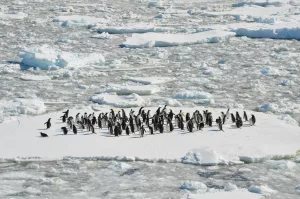Is it possible for a falcon to recognize its handler from a mile away?
Falcons are highly intelligent birds of prey known for their remarkable eyesight and ability to distinguish between various objects at great distances. This keen eyesight allows them to spot prey from high altitudes and make precision strikes during hunting. In the wild, a falcon’s ability to recognize its handler from a mile away may seem like a stretch, but with proper training and conditioning, this feat is indeed possible.
The Bond Between Falcon and Handler
Developing Trust and Familiarity
Through consistent training and positive reinforcement, falcons can form strong bonds with their handlers. These birds are capable of recognizing familiar faces and associating them with positive experiences. Trust is the cornerstone of this relationship, and it begins with the handler spending significant time with the falcon, engaging in gentle interactions and ensuring the bird feels secure.
Practical Tip: Start by handling the falcon regularly in a calm environment where the bird can become accustomed to your presence. Use a soothing voice and gentle movements to establish a sense of safety and trust.
Falcons, like humans, have personalities and temperaments. Some may be more reserved, while others could be naturally inquisitive. Understanding these nuances is crucial. For instance, a particularly skittish falcon might need extra time and patience to warm up to its handler. Observing and adapting to these individual traits helps build a more robust and personalized bond.
Real-Life Example: A falconer in Arizona had a gyrfalcon that was initially very aloof and independent. By spending quiet afternoons simply sitting nearby and allowing the bird to approach at its own pace, the handler eventually gained its trust, resulting in a strong bond that improved training outcomes significantly.
Use of Cues and Commands
Handlers often employ specific cues, gestures, or vocal commands to establish a connection with their falcons, further solidifying their bond. These cues become a language of sorts, allowing the falcon to understand expectations and respond accordingly.
Example: A handler might use a distinctive whistle to call the falcon back during a flight. Over time, the falcon learns to associate this sound with returning to its handler for a reward.
Additional Insight: Incorporating hand signals along with vocal commands can be particularly effective. In environments where sound might not travel as well, such as windy conditions, visual signals can ensure communication remains clear.
The Role of Scent Recognition
While visual and auditory signals are vital, scent also plays a subtle yet significant role in how falcons recognize their handlers. Human scent is unique, and falcons, with their acute sensory perception, can become familiar with their handler’s scent over time. This olfactory recognition acts as another layer of familiarity that aids in the bond.
Practical Advice: Spend time around your falcon without gloves initially, allowing it to get used to your natural scent. This practice helps reinforce the recognition process.
The Role of Visual Signals
Visual signals play a crucial role in the communication between falcons and handlers. By using distinctive clothing, headgear, or equipment, handlers can create visual markers that help falcons identify them from a distance. These unique visual cues allow falcons to establish a visual connection with their handlers, even when they are far away.
Creating Unique Visual Markers
Handlers might wear brightly colored jackets or hats, making them stand out in the landscape. Such visual markers are invaluable when a falcon is soaring high, scanning the ground below.
Practical Tip: Choose a color or pattern that is easy for the falcon to spot against the natural background of your flying environment. Consistency in your attire helps reinforce this visual recognition.
Expanded Insight: Beyond clothing, consider the falconry equipment itself. Some handlers personalize their falconry gloves or lures with unique patterns or colors, which can serve as additional visual cues for the falcon. This strategy can be particularly effective if the falcon is accustomed to targeting specific items during training.
Case Study: In a falconry center in Scotland, handlers found success by attaching small, brightly colored flags to their gloves. This additional visual element helped the falcons quickly locate their handlers, even when flying over dense foliage or rugged terrain.
Conditioning and Training Techniques
Handlers use a combination of conditioning and training techniques to reinforce the falcon-handler relationship. Through positive reinforcement, such as providing food rewards or praise, falcons learn to associate their handlers with positive outcomes. Over time, this conditioning helps falcons recognize their handlers from afar and respond to their cues efficiently.
Positive Reinforcement Techniques
Positive reinforcement is central to falcon training. When a falcon returns to its handler or successfully completes a task, it is rewarded with a treat, such as a small piece of meat. This reward system encourages the falcon to repeat the desired behavior.
Real Example: A falconer in the UK used small, frequent rewards to train his peregrine falcon to return from long distances. Over months, the falcon learned that returning promptly meant more frequent treats.
Practical Tip: The timing of the reward is critical. Ensure that the falcon receives the reward immediately after performing the desired behavior to strengthen the association.
Operant Conditioning and Shaping Behavior
Additionally, handlers may also utilize operant conditioning methods, such as shaping behavior through successive approximations, to teach falcons complex tasks and behaviors. This involves gradually training the falcon to perform a desired behavior by reinforcing small steps along the way.
Practical Insight: Start with simple tasks and gradually increase complexity. For example, initially reward the falcon for flying short distances back to the glove, slowly increasing the distance as the bird gains confidence and understanding.
Expanded Concept: Incorporating variable rewards can also be effective. By occasionally varying the size or type of reward, handlers can maintain the falcon’s interest and motivation, preventing habituation to the training routine.
Understanding the Falcon’s Learning Curve
Every falcon has its unique learning curve, influenced by factors such as species, age, and individual personality. Recognizing when a falcon is ready to progress to more challenging tasks is crucial. Overloading a falcon with too many new commands or increasing the difficulty too rapidly can lead to frustration and setbacks.
Professional Advice: Observe your falcon closely for signs of stress or fatigue. If the bird appears overwhelmed, it may be beneficial to revert to simpler tasks and reinforce basic behaviors before advancing again.
Scientific Studies and Observations
Scientific studies have also shed light on the cognitive abilities of falcons in recognizing humans. Research has shown that birds like falcons possess advanced visual processing skills and memory capabilities, enabling them to distinguish between familiar and unfamiliar individuals. This heightened perception plays a significant role in their ability to recognize their handlers from long distances.
Insights from Neuroscience
Studies have also explored the neural mechanisms underlying this recognition, revealing fascinating insights into the intricate workings of a falcon’s brain. Falcons have a highly developed visual cortex, which processes complex visual information, allowing them to identify familiar shapes and faces even from afar.
Scientific Data: Research indicates that the visual acuity of a falcon is around 2.6 times better than that of humans, meaning they can see details from far greater distances.
Comparative Studies with Other Birds of Prey
Falcons are not the only birds with exceptional recognition abilities. Comparative studies involving eagles, hawks, and owls have provided additional insights into avian cognition. While each species has unique strengths, falcons consistently demonstrate superior speed and precision in recognition tasks, owing to their evolutionary adaptations for high-speed hunting.
Interesting Fact: In a controlled experiment, peregrine falcons were able to distinguish between identical twins based solely on subtle differences in movement and posture, illustrating their keen attention to detail.
Common Mistakes and How to Avoid Them
Inconsistent Training Methods
One common mistake is inconsistency in training methods, which can confuse the falcon. It’s essential to maintain a consistent approach in commands, rewards, and training frequency to build a reliable response.
Tip: Develop a training plan and stick to it. Consistency helps reinforce learning and behavior.
Neglecting Environmental Factors
Environmental factors such as weather, distractions, or changes in the landscape can impact a falcon’s ability to recognize handlers. Training sessions should account for these variables, ensuring that the falcon is accustomed to different scenarios.
Practical Advice: Gradually introduce the falcon to varied environments, starting with controlled settings and moving to more challenging ones as the bird’s confidence grows.
Overlooking Health and Well-Being
A falcon’s health directly affects its performance and recognition abilities. Overlooking signs of illness or fatigue can lead to decreased responsiveness and overall well-being.
Health Tip: Regularly monitor your falcon for signs of stress, illness, or injury. Ensure the bird receives a balanced diet, appropriate exercise, and routine veterinary care to maintain peak condition.
Step-by-Step Guidance to Training Falcons
Initial Acclimatization
- Familiarize: Let the falcon spend time in its new environment, observing its surroundings and the handler without pressure.
- Gentle Interaction: Engage in calm, non-threatening interactions to build initial trust.
Establishing Basic Commands
- Introduce Commands: Start with simple commands, using consistent verbal cues or gestures.
- Reinforce with Rewards: Immediately reward the desired response to reinforce the command.
Building Distance
- Gradual Increase: Begin with short distances, rewarding the falcon for returning to the handler.
- Extend Range: Slowly increase the distance as the falcon becomes more comfortable with the exercise.
Handling Distractions
- Controlled Distractions: Introduce small distractions in a controlled environment to test the falcon’s response.
- Adaptation: Gradually increase the level of distraction, rewarding focus and compliance.
Advanced Techniques for Long-Distance Recognition
- Use of Technology: Employ GPS trackers to monitor flight patterns and optimize training sessions for long-distance recognition.
- Simulated Scenarios: Create mock scenarios where the falcon must locate the handler from various distances and angles, enhancing problem-solving skills.
Encouraging Socialization
- Exposure to Different Handlers: Occasionally introduce the falcon to other trained handlers to prevent dependency on a single individual.
- Group Flights: Engage in group training sessions with multiple birds and handlers, promoting social skills and adaptability.
The possibility of a falcon recognizing its handler from a mile away is not just a fanciful notion but a reality grounded in the strong bond and mutual understanding between the bird and the handler. With the right training, conditioning, and visual signals, falcons can develop a remarkable ability to identify their handlers even from great distances, showcasing the complex cognitive abilities of these magnificent birds of prey. This bond between falcons and handlers goes beyond mere recognition; it exemplifies the deep connection that can exist between animals and humans, built on trust, respect, and diligent training efforts. Through careful nurturing and understanding, handlers can cultivate a partnership that not only highlights the intelligence of falcons but also the profound harmony achievable between species.

